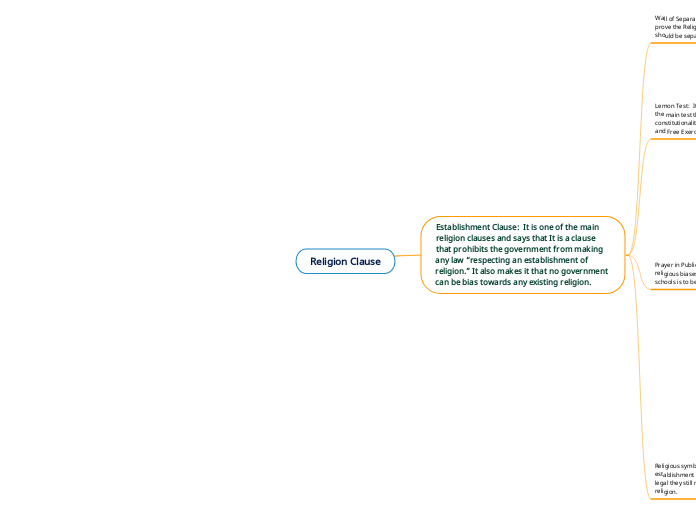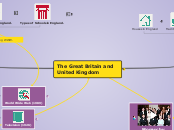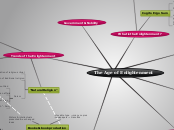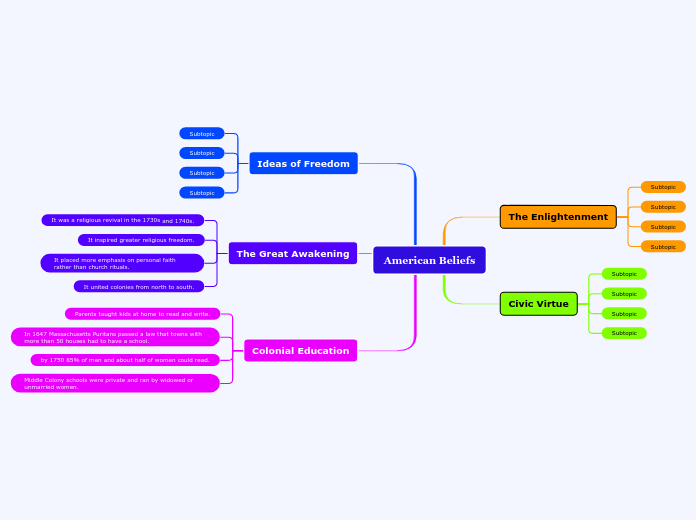Religion Clause
Establishment Clause: It is one of the main religion clauses and says that It is a clause that prohibits the government from making any law “respecting an establishment of religion.” It also makes it that no government can be bias towards any existing religion.
Religious symbols in public places: This connects to the establishment clause because while religious symbols can be legal they still require government “neutrality” towards religion.
County of Allegheny v ACLU: This case impacts our understanding of the first amendment because this case helps us understand why displaying certain religious objects can or can be going against the establishment clause. The reason the tree was forbidden and not the menorah is because the tree "principle or primary effect" of the display was to advance religion while the menorah on the other hand was just a physical setting.
Lynch vs Donnely: This connects because in a close decision happened at the mall was constitutional and remained neutral. They felt that there was no bias towards any specific religion making the display allowed. What happened is not against the separation of church and state because it is inevitable that small clashes would occur
Prayer in Public Schools: Demonstrates that there can be no religious biases in any public school because the point of public schools is to be diverse.
Robert E. Lee Vs. Daniel Weisman: The connection between prayer in public schools and this case is clear. The supreme court concluded that having a Rabbi say a prayer at a ceremony was unconstitutional and would insight coercion. Lastly, because this was a public school, it would be unconstitutional and violate the prayers in public schools aspect because of the promotion of one specific religion.
Santa Fe Independent School District Vs. Doe: This connects to the prayer in public schools because the court ruled that the prayers before the games were in fact unconstitutional and violated the establishment clause. Although the school district argued that the students were practicing private speech, the supreme court determined that these prayers were public speech.
Wallace V. Jaffree: This connects to prayers in public schools because the one-minute period of silence in all public schools “for meditation or voluntary prayer” violated the First Amendment's establishment clause. This is because it didn’t follow the state's duty to be neutral in public schools which is one of the main points of the Prayer in Public Schools:.
Engel v Vitale: The main connections is that in Engel vs Vitale there would be a prohibition of school sponsored prayer in public schools. This helps to demonstrate that schools are meant to be accepting to all types of people and focusing their attention on one religion displays favoritism and inequality.
Lemon Test: It connects to establishment clause because was the main test that was established in order to evaluate the constitutionality of laws alleged to violate the Establishment and Free Exercise Clauses.
Wall of Separation: This is one of the main points that helps to prove the Religion Clause. It is the main rule that religion should be separated from all government affairs.
Tax Money for Religious Education: This connects to the Establishment clause because the establishment clause says that government can't support any religion and by taxing on specific religious education it is demonstrating that they are bias toward one religion.
Everson V. Board: This connects to Tax Money for religious education because in this case there was allowed public funding for transportation to religious schools. One might think off the bat that the law would not be passed. And that way is that as long as the government isn’t favoring certain religions and everyone receives the same treatment, money can go towards religious purposes.
McCollum v Board: This connects because the Court said that the use of tax-supported property for religious instruction between the school authorities and the religious council violated establishment clause. Because students were required to attend school and were released in part from this legal duty if they attended the religious classes.









